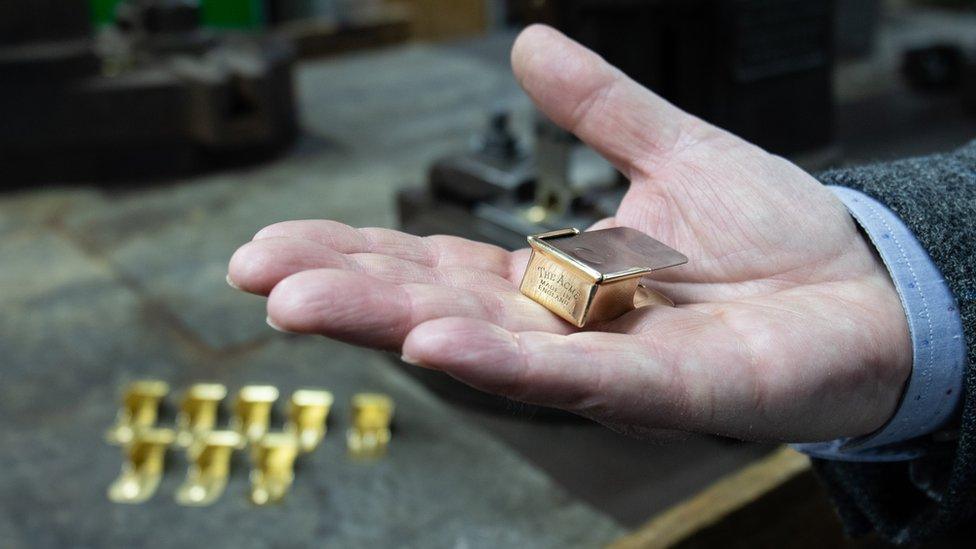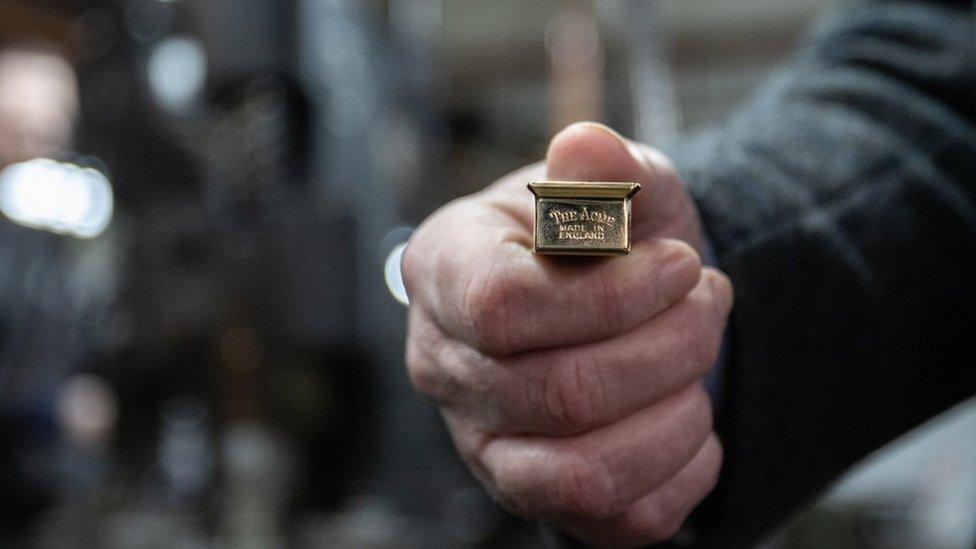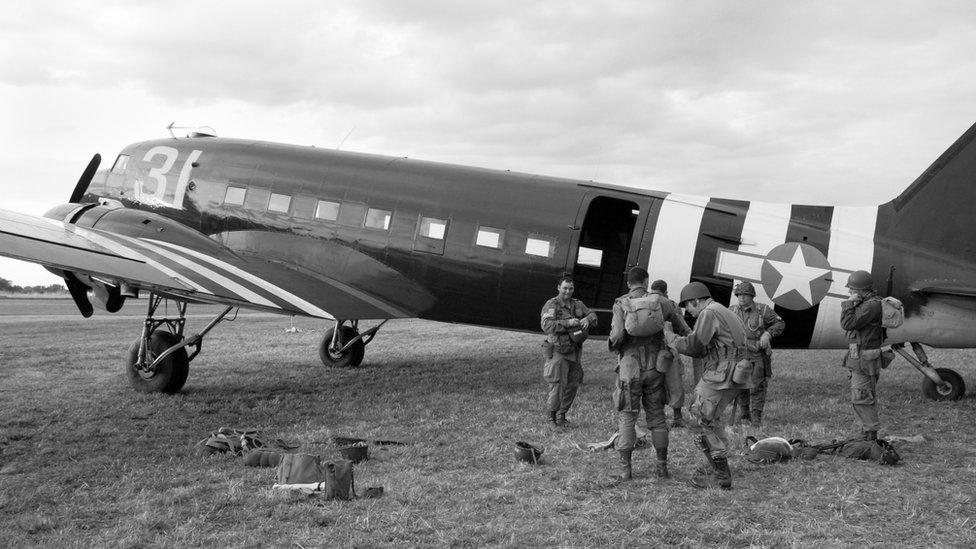WW2 lost 'clickers' sought for 75th D-Day anniversary
- Published

The clickers were only used for 24 hours for fear of them being captured and replicated
Lost 'clickers' from the D-Day Normandy landings are being sought to commemorate the 75th anniversary of the World War Two invasion.
Birmingham manufacturer ACME Whistles made 7,000 devices in just six months for the soldiers but said "very few" originals have been seen since.
Soldiers would use the clickers to communicate with people nearby to establish if they were friend or foe.
The company said it hoped to "unearth a lost piece of sound history".

Allies would respond to a click with two clicks of their own
As soldiers from the American Airborne Division were dropped behind enemy lines in darkness, they used the clickers if they detected someone nearby.
Two clicks in response to one meant it was a friend.
Fearing the clickers would be captured and replicated, they were only ever used for 24 hours before they were banned completely.
ACME Whistles was founded in Birmingham in 1870, where it still exists today in the city's Jewellery Quarter.
During the World War Two, it was dedicated entirely to making whistles and clickers for the war effort.
However, as the landings were a top secret project, little paperwork or images of the clickers and their production existed.

On the night of the invasion only around 15% of paratroopers landed in the right place
"The factory itself was bombed when incendiary bombs were dropped and one found its way down the lift shaft, exploding in the cellar," Simon Topman, the company's managing director, said.
"Whistles were sent raining out into the streets of Birmingham, a third of the factory was demolished, but so essential were its products that it was rebuilt in just four days."
You may also be interested in
He said nobody had ever contacted them having found a clicker and he wanted to find as many of the original 7,000 as possible ahead of the 75th anniversary on 6 June.
People may not realise "the significance of the unassuming clicker," he said.

Follow BBC West Midlands on Facebook, external, on Twitter, external, and sign up for local news updates direct to your phone, external.